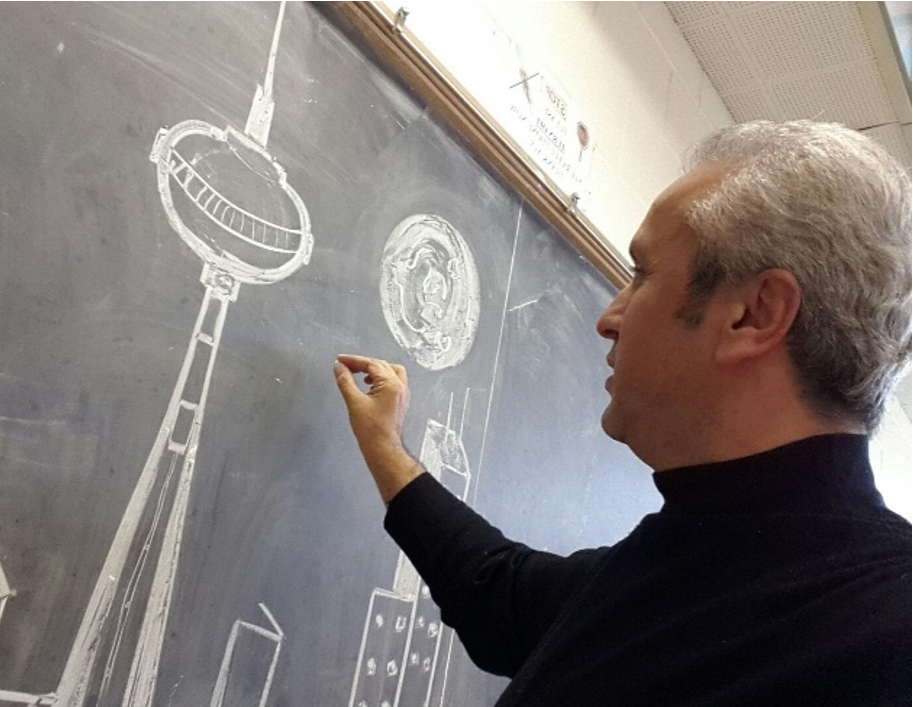Resources
Deep Roots and Growing Branches
Mothercraft’s History of Training and Service Excellence
By Glory Ressle, Director of Education Training & Data, Canadian Mothercraft Society
Most people are surprised to learn that the Canadian Mothercraft Society’s reputation of providing high quality early education and care training programs and direct services for children and families has its roots in the turn of the last century and the other side of the globe. From its inception, there was a strong focus on combining both education and direct service practices based on scientific and research findings.
It all began in 1907 when Dr. Truby King was motivated by high infant mortality rates in New Zealand to form a voluntary society that would ‘help mothers and save babies’. He developed ‘Mothercraft’ as an educational process aimed at lowering these unacceptable baby death rates.
Dr. King aimed to spread ‘a lofty view of the responsibilities of maternity’, promote breast feeding, train nurses in maternal and infant welfare, and educate parents in parenting, domestic hygiene and nutrition. To promote these ideas he established the Royal New Zealand Society for the Promotion of the Health of Women and Children, and it came to be known as the Plunket Society because Lady Victoria Plunket, the wife of the Governor was an ardent supporter of Dr. King’s work.
With her assistance, the movement spread rapidly and prominent women were inspired to devote their energies to promoting the cause of child welfare. Committees were formed throughout the country, local clinics were opened and nurses trained in infant welfare visited mothers in their homes. Nurses in hospitals were taught to encourage recent mothers to breastfeed their infants, as King believed that breastfeeding ‘foster[ed] the highest development of maternal love and devotion’. This direct family and education work of the Plunket Society continues across New Zealand to this day – in some form or another.
The underlying message of his program was preventative in nature as he advocated that we “Build healthy babies rather than patch sick ones” and he had a vision of babies saved through the application of science to motherhood. However, some of Dr. King’s original ideas such as limiting bonding time and establishing strict infant schedules have been subsequently disproven and are no longer included in education programs or direct service practices.
In fact, King later modified his stance on limited cuddling and strict infant routines to emphasize the consistency of care rather than duration or scheduling and we now focus on the quality and consistency of our bonding interactions with young children. Also, the original, more directive advice giving provided by the Plunket nurse was eventually replaced by a flexible partnership model of care and support for parents and their children.
The Plunket Society quickly became the basis for Mothercraft centres established in England, India, Jamaica, Scotland, Australia, and South Africa and eventually Canada. Barbara Mackenzie, a student of Dr. King and a Registered General Nurse and Midwife from New Zealand, came to Toronto. She married Irving Robertson, the Chairman of the Board of the Hospital for Sick Children. Together, in 1931, they set up a Mothercraft Centre under the auspices of The Hospital for Sick Children and Her Majesty Queen Elizabeth became the Honorary Patroness of the newly formed Canadian Mothercraft Society.
Mrs. Robertson founded the Mothercraft Well-Baby Nursing Training program, operated a maternity hospital and provided a community registry which was maintained until 1990. Mothercraft also supported infants awaiting adoption with the Catholic Children’s Aid Society, provided hospice for infants who were very ill, and pioneered pre-natal classes that focused on mental health and infant well-being.
Students in the Mothercraft Well-Baby Nursing program underwent a year of studies in the Mothercraft Hospital and 4 months of placement practicum. Lectures were given by members of the medical and dental professions, child psychologists, dieticians and Mothercraft nursing staff. While the Plunket Society continues to have a nurse training and service focus to this day, in 1944 the Canadian Mothercraft Society shifted its educational focus to infant child care.
Then, in 1965, Mothercraft opened one of the first infant child care centres in Toronto, positioning it as a leader in both infant care education and direct service. A few years later, in 1967, a joint Mothercraft and Ontario Institute for Studies in Education research project was undertaken to determine the effects of quality child care on disadvantaged children and the findings formed the basis upon which an Early Childhood Education Diploma curriculum was written.
This work and 10 years of subsequent experience providing quality education led to Mothercraft being awarded post-secondary program equivalency from the Association of Early Childhood Educators of Ontario and the Ministry of Children and Youth Services in 1978.
The Canadian Mothercraft Society has continued its commitment to excellence through its focus on combining research, education and best practice over the last 40 years. This has included:
• Developing expertise and specialized education programs in a wide range of areas, such as: home child care, infant/toddler care, child mental health, trauma informed intervention services, educator pedagogies, leadership, anti-bias, Indigenous specific, family support, and newcomer child early development and family functioning.
• Expanding infant child care services to include toddler and preschool child care.
• Providing training across Ontario and Canada.
• Conducting research and publishing findings.
• Presenting at conferences across Canada and in France, Italy, Czechoslovakia, the United Kingdom, Australia, New Zealand, the United States, and Mexico.
• Obtaining national and international Best Practice Site recognition and local, provincial and national leadership appointments.
• Opening the Mothercraft College of Early Childhood Education at 646 St. Clair Ave., West. And approval to act as a recognized Private Career College.
The Canadian Mothercraft Society understands that there is still much to be done to promote further understanding of the importance of the early years to later life outcomes both locally and in Canada and around the world. We have continued to build on Dr. King’s original ideas around caring for mothers, the importance of infant attachment, and applying science and research findings to education programs and our professional practices.
This approach, along with over 85 years of experience in education around early care and development and an established history of pursuing of excellence, has resulted in Mothercraft being well known for offering a variety of highly regarded child and family services and professional education and training programs. For further information, please visit: www.mothercraft.ca, email: college@mothercraft.org or call 416-483-0511.




